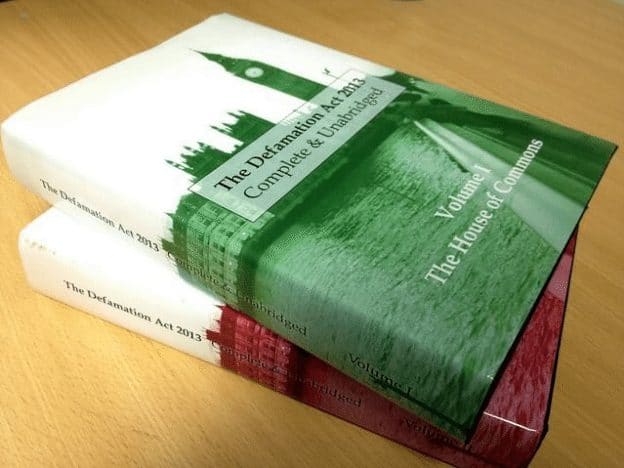What is Defamation?
Whenever there is a statement made that injures someone’s reputation, the terms defamation, libel, and slander are thrown around. The terms are commonly misused interchangeably. Defamation is the act of making a false statement that harms someone’s reputation. Both libel and slander are forms of defamation. All of the terms fall under the legal category of torts, which allows a person who is harmed to file a civil suit under state law against the party who committed the harm. The internet has opened up individuals to internet slander and internet libel as well, and made it much easier for on individual person to be subject to either defamation or a defamation lawsuit.
Defamation Links
Internet Defamation: What is Defamation?
What is Libel?
Libel is the written form of defamation, and is expressed through writing, print, pictures, signs, or any other physical communication. This may harm a person’s reputation, expose a person to public humiliation or criticism, or injure the person’s business or profession. While statements made online have limited censorship, harmful reviews on popular sites like Yelp and Amazon are considered libel.
Links to Libel Posts
Internet Libel: How Do I Deal With It?
Removing Defamatory Reviews from Websites like Yelp
What is Slander?
Slander is the spoken form of defamation. It is the act of verbally spreading an untruthful statement about another person, which will harm that person’s reputation. However, statements made on the air during television or radio broadcasts are considered libel rather than slander because of the idea that it reaches a larger audience like printed publications. This may also be the case in today’s social media driven world. Statements made through video blogging on platforms such as YouTube, Instagram, and Snapchat are certainly subject to defamation laws. The ability to share your thoughts online is a gift and a curse.
Slander Links
Free Speech Rights Do Not Protect You Against Defamatory Statements You Make
Defamation Suits
In order to win a defamation claim, the plaintiff has to show four elements: 1) there was a false statement; 2) the statement was published or communicated to a third party; 3) there was a party at fault; and 4) there was harm to the person or entity that was the subject of the false statement.
The burden of proving defamation varies among states and the type of claim. For private defamation claims, meaning a private person, the defendant may be liable regardless of his guilty intent. On the other hand, for public figures, such as politicians, entertainers, etc., to prevail on a defamation claim, the plaintiff must show that the defendant made the statement with knowledge that it was false or with disregard to its truthfulness.
Aside from the common defense that the alleged defaming state is true, there are absolute and qualified privileges. Absolute privilege may be used as a defense to defamation when the person is making the statement as a witness in a court proceeding. The reason is that there are specific consequences for that person if they fail to tell the truth when testifying. Qualified privileges occur in a few states for situations where an employer references a former employee particularly when discussing misconduct and reasons for discharge.
Damages
Due to the right of freedom of expression under the First Amendment, the U.S. Supreme Court has held that States have limited power when awarding damages for defamation suits. For example, in the landmark case of New York Times Co. v. Sullivan, the Court stated that statements regarding matters of public concern are one of the primary protections guaranteed under the First Amendment; therefore, a State’s interest in compensating an individual for damage to their reputation is outweighed by the public concern. However, the Court does recognize that there is a strong, legitimate interest in compensating individuals for damage to their reputations and has allowed compensation for actual injury.
For more information about privacy, contact Revision Legal’s team of experienced defamation attorneys through the form on this page or call 855-473-8474.
Image courtesy of Flickr user Robert Sharp.




